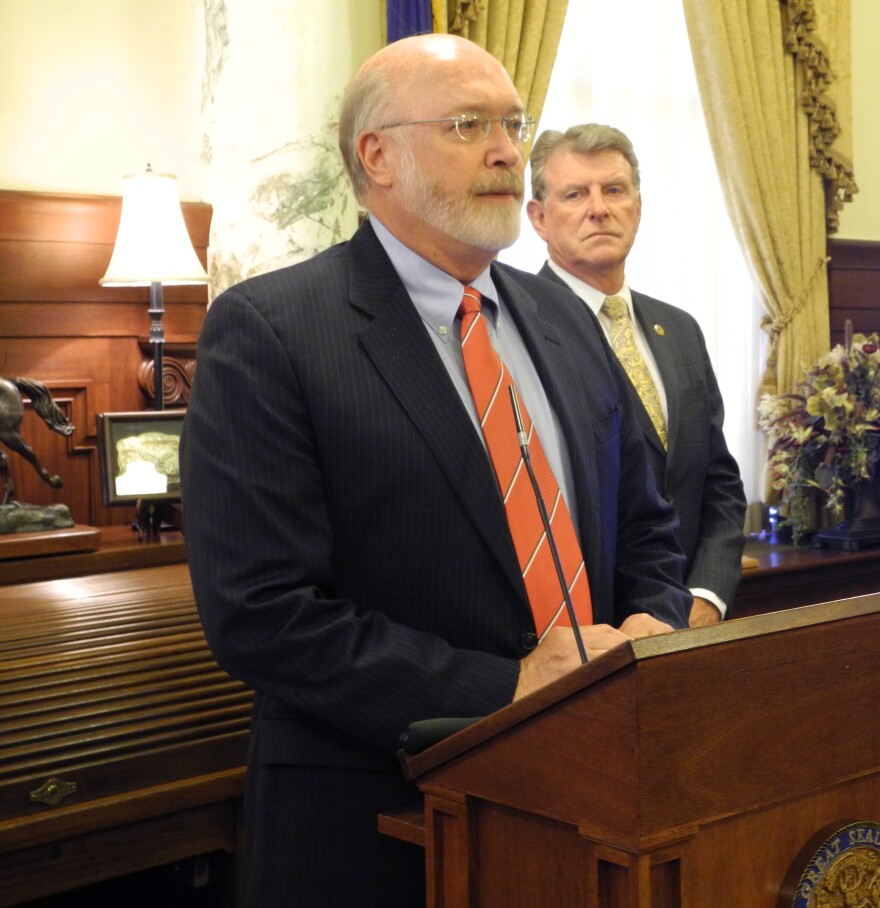Acknowledging Idaho's economic development "sins of the past" Tuesday, Gov. C.L. "Butch" Otter unveiled a revamped business incentive program that was once touted as a job creator, but Otter now wants it viewed as a way to train workers for high-skill jobs.
Idaho's Workforce Development Training Fund was created in 1996 as a way to lure businesses to the state, and encourage them to create and retain jobs. As an incentive, the state has granted $43 million to about 200 companies over the last 18 years.
As its name suggests, it rewards companies for broadening its employees’ skills. The fund has been scrutinized over the last few years after companies received millions from the fund, and then closed.
At a press conference announcing changes to the program, Gov. Otter acknowledged the state should focus less on corporations and more on people.
"I’d be probably the first to admit personally, that maybe you know, there have been times that we were so desperate that we let our faith, override our wisdom," he says. "And we’re correcting on that.”
A 2012 internal audit of the program found it was effective less than half of the time.
StateImpact Idaho's analysis found that at least 11 companies that received training grant reimbursements laid off their Idaho employees and closed or left the state. That includes big names like Transform Solar and Four Star XL Beef.
Under the state’s revamped workforce development training fund, it will still reimburse businesses for training new employees or employees they would have laid off unless they got more training. But now, there is a complex reimbursement matrix that incentivizes companies for -- among other things -- paying wages above $12 an hour, which is the base requirement.
The company can also qualify for larger reimbursements based on their industry’s economic multiplier effect, the transferability of the skills they teach workers, and workers’ education.
But like the old version of the program, the new one still won’t include a “clawback provision” requiring the business to return its grant money in the case that they do close or lay off workers. Idaho Labor Department Director Ken Edmunds says that shouldn’t matter.
"If we handle the program the way we intend, and have the accountability we intend, and create the transferable skills, it’s irrelevant what the company does because people are very mobile," says Edmunds. "We want a skill set with these people, where it doesn’t matter what the company does.”
Edmunds adds the program will now reward companies for instituting structured apprenticeship programs and certificates.
The Workforce Development Training Fund is paid for by a portion of the state’s unemployment insurance tax, which most businesses pay into.
Learn about the new matrix that will be used to determine reimbursement amounts here.
In order to qualify for the training grants, businesses must pay their employees at least $12 an hour and provide health benefits. Companies in urban areas must create a minimum of five new jobs. Rural businesses must create one in order to qualify.
To be eligible, companies must generate at least half of their revenue from products or services sold outside of Idaho, or be in the health care sector.
Find Emilie Ritter Saunders on Twitter @emiliersaunders
Copyright 2014 Boise State Public Radio



